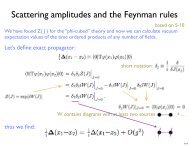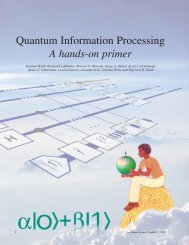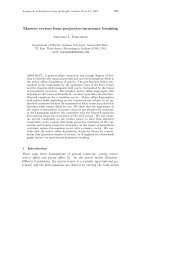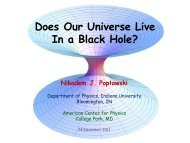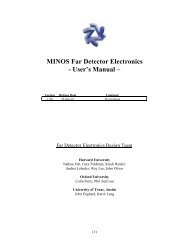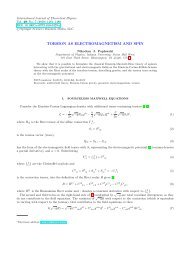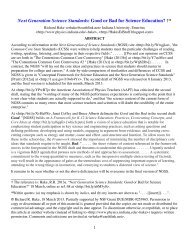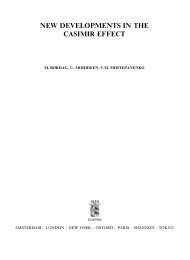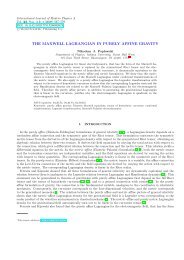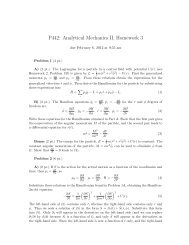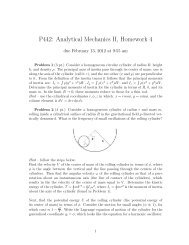Over Two-Hundred Education & Science Blogs * † - Department of ...
Over Two-Hundred Education & Science Blogs * † - Department of ...
Over Two-Hundred Education & Science Blogs * † - Department of ...
You also want an ePaper? Increase the reach of your titles
YUMPU automatically turns print PDFs into web optimized ePapers that Google loves.
Petrilli, M.J. 2009. “Linky Love, Snark Attacks, and Fierce Debates about Teacher Quality? "A<br />
peek inside the education blogosphere," <strong>Education</strong> Next 9(1), Winter; online at<br />
. Petrolli wrote:<br />
<strong>Blogs</strong> represent the “long end <strong>of</strong> the tail” <strong>of</strong> the media; a new form <strong>of</strong> mass communication this is<br />
not. And at the far end <strong>of</strong> that long tail sits the education blogosphere, a niche within a niche, with as<br />
many as 30,000 blogs. . . . .[Petrilli does not indicate how he derived his estimate <strong>of</strong> 30,000 Ed<strong>Blogs</strong><br />
but it’s possible that he used Technorati’s Advanced Search<br />
to search in all blogs (not posts within blogs) for:<br />
“<strong>Education</strong>.” As indicated in Appendix C2, that search netted 28,842 hits on 26 February 2009.]. . . .<br />
. . According to the information at : Petrilli oversees the<br />
Hoover foundation's blog The <strong>Education</strong> Gadfly (see the present blog listing under Amy FAGAN); is<br />
co-author <strong>of</strong> No Child Left Behind: A Primer<br />
; and was formerly at the U.S. <strong>Department</strong><br />
<strong>of</strong> <strong>Education</strong>, where he served as associate assistant deputy secretary in the Office <strong>of</strong> Innovation and<br />
Improvement.<br />
PLoS ONE? 2009. “An interactive open-access journal for the communication <strong>of</strong> all peerreviewed<br />
scientific and medical research; online at .<br />
Articles in physics are at . For commentary on the debut <strong>of</strong> PLoS<br />
Biology, see Davis (2007).<br />
Poe, M. 2006. “The Hive: Can thousands <strong>of</strong> Wikipedians be wrong? How an attempt to build an<br />
online encyclopedia touched <strong>of</strong>f history's biggest experiment in collaborative knowledge,”<br />
Atlantic Monthly, September, online at . See<br />
also <br />
Price, R. 2008. “Academia.edu: 'tree' <strong>of</strong> academics launches,” AERA-K post <strong>of</strong> 10 Nov 2008<br />
12:08:38-0800; online at . According one <strong>of</strong> its originators,<br />
philosopher Richard Price (2008), the. . . . [ Academic Tree ]. . .<br />
does two things:<br />
1. shows researchers around the world in a “tree” format, displaying which institution/department<br />
they are affiliated with;<br />
2. enables researchers and academics to keep track <strong>of</strong> the latest developments in their field – the<br />
latest people, papers, and talks.<br />
Price optimistically adds [my italics]:<br />
We're hoping that Academia.edu will eventually list every academic in the world -- Faculty<br />
members, Post-Docs, and Graduate Students. People can add their departments, and<br />
themselves, to the tree by clicking on the arrows. The site is getting some traction. <strong>Over</strong><br />
14,000 academics have joined Academia.edu in the last two months.<br />
55



